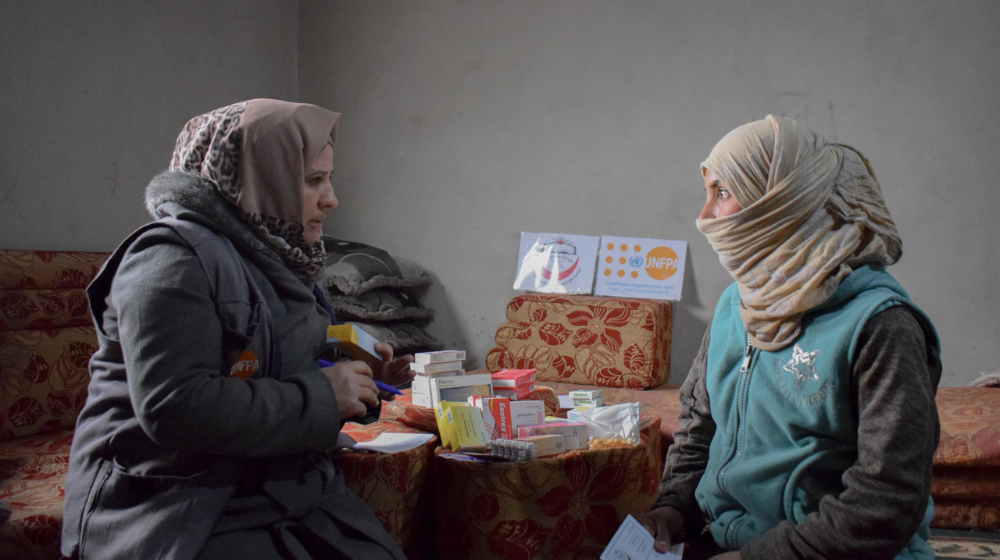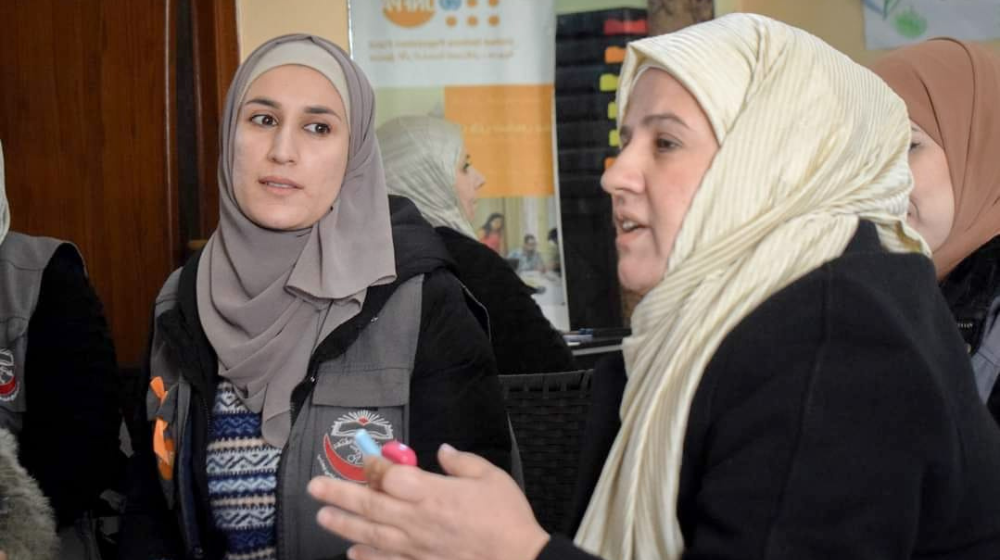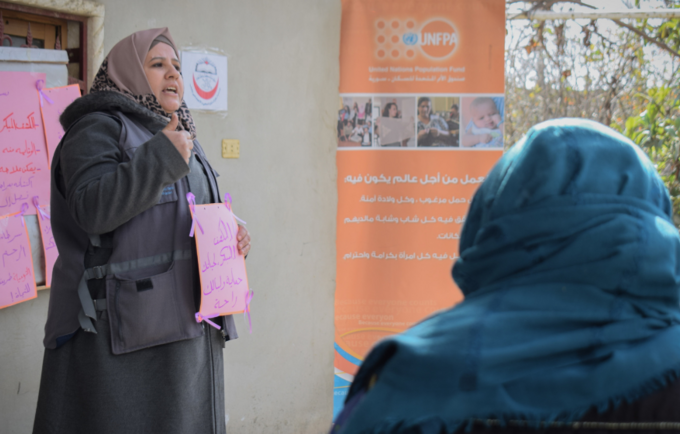“In my 25 years as a midwife, one of my most challenging cases was a high-risk pregnancy of a woman carrying twin fetuses,” says Yusra, 47, midwife in Deir Ezzor, Syria.
“During the night, out in one of the health centre’s in the countryside in Deir Ezzor, a pregnant woman was at risk of losing her twins, but the rapid intervention from the team and me saved their lives.”
“We didn’t have much back then, but we kept both of the unborn babies alive,” adds Yusra.

Health services are scarce in the war-torn and remote eastern region of Deir Ezzor, but UNFPA-supported mobile teams go the extra mile to reach women and girls regardless.
“I’ve delivered over 200 babies, even for my own sisters,” says Yusra, who now provides crucial care health guidance to girls in the area, including on family planning, with a UNFPA-supported mobile health team.
“Midwives in the mobile teams offer comprehensive health guidance to girls, focusing on raising awareness about menstrual disorders, dispelling misconceptions, and educating them on safe family planning practices,” says Muriel Mafico, UNFPA Representative in Syria.
More midwives
“Through their hard work, midwives like Faten make a big difference for women and their families. They make sure that every birth is safe, and is a positive experience,” Rawan says.

A new and growing UNFPA-supported Midwifery Network in Deir Ezzor has facilitated around 340 safe births so far in 2024, and facilitated over 1200 safe births throughout 2023.
“The Midwives Network has become a beacon of hope for pregnant women in rural Deir Ezzor,” says Muriel Mafico, UNFPA Representative in Syria. “Their commitment to providing clean, and safe births has significantly improved maternal and newborn health in the area.”
Urgent need
“When crisis strikes, midwives are often first on the scene. They know babies arrive no matter a childbearing woman’s circumstances – whether she’s resting at home or fleeing it due to conflict or disaster,” said UNFPA Executive Director Dr. Natalia Kanem in a statement commemorating the International Day of the Midwife.
“[They] are the unsung heroes of community health services.”

